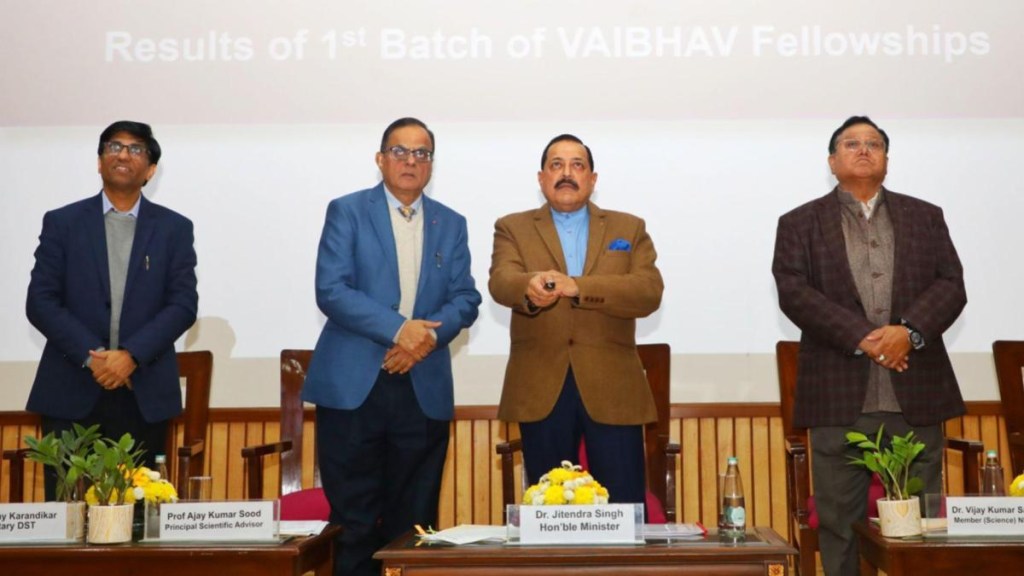Union Minister of Science and Technology Jitendra Singh marked a significant milestone by launching the first batch of Vaibhav Fellowship on Tuesday. The fellowship, awarded to 22 Indian-origin scientists dispersed globally, aims to harness the scientific capabilities of the Indian diaspora, fostering research collaborations with prominent Indian institutes.
The 22 scientists, predominantly affiliated with esteemed North American and European institutions, such as the California Institute of Technology, University of Oxford, and University of Michigan, will spend one to two months annually, up to a maximum of three years, at host Indian institutes. These include renowned institutions like the Indian Institute of Science, the Indian Institutes of Technology, and the Tata Institute of Fundamental Research.
Two ‘distinguished fellowships’ were also conferred upon senior professors, Arogyaswami Paulraj from Stanford University and Jitendra Malik from the University of California, Berkeley.
Vaibhav fellows’ stipend
Each Vaibhav fellow is entitled to a monthly stipend of Rs 4 lakh, accommodation, and a research grant for the host institute. The fellowship encourages scientists to initiate projects or technology start-ups within three years, fostering long-term research connections and collaboration with the host faculty. The fellows are expected to bring fresh ideas to the field in the context of Indian university and research settings.
The Vaibhav Fellowship Scheme, launched on National Science Day in February 2023 with an aim to not only tap into the scientific prowess of the Indian diaspora but also to reconnect them with their cultural roots.
More about the fellowship scheme
Structured around 18 designated knowledge verticals, including Quantum Technology, Health, Electronics, and Energy, the fellowship is open to outstanding scientists and technologists of Indian origin actively engaged in research abroad. Categories encompass Non-Resident Indians (NRIs), Non-Resident Indians of Indian Origin (PIO), and Overseas Citizen of India (OCI).
Selected fellows have the opportunity to conduct collaborative research with Indian educational institutions, universities, and publicly funded scientific establishments. They can reside in an Indian institution of their choice for up to two months every year, fostering a dynamic exchange of ideas and expertise.

